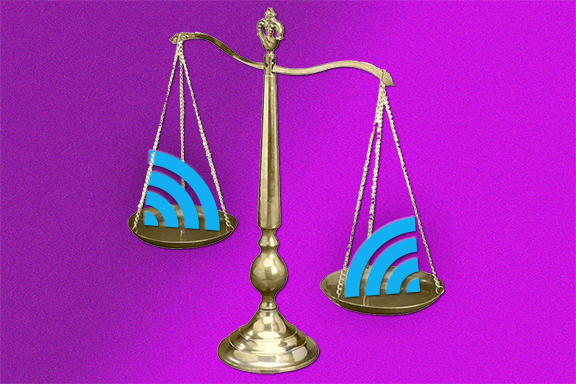What is net neutrality?

December 8, 2017
Net neutrality is the concept that all internet providing services must not discriminate between different websites by providing equal access to all websites. This might sound like something that doesn’t affect or concern high school students, but in reality it will affect us the most.
Without net neutrality different internet providers can slow down or stop internet access to certain websites. This will allow internet providers to charge more for these different websites. After news came out that Federal Communications Commission (FCC) chairman, Ajit Pai, was planning on revoking net neutrality many protested this action. Two of the main concerns that arose from this plan were that 1) internet providers would charge more for certain websites and 2) internet providers would have access to anything you do on the internet. ISP’s (internet service providers) already have some access to what you do on the web, so imagine now that they can log all the different websites you are on. They would be able to keep track of your web history. Many are worried that the information that ISP’s get will possibly be sold to third party companies in order to use for marketing research. Not only that, but many fear this will lead up to many losing their privacy.
Although it may not be as obvious as privacy loss and internet upcharge, the loss of many small business would also be a big problem with net neutrality. With many businesses opening up solely on the internet, they run the risk of becoming bankrupt if ISPs decide to block the website in which they distribute their goods. For years, many owners have been using social media as a way to advertise their merchandise and have had much success, but with net neutrality many fear that with the loss of accessibility to their online stores, bankruptcy will follow.
There are many disadvantages of getting rid of net neutrality, but what are the benefits? One point many make is: why pay more for services you don’t use? One scenario that could be used to explain this is: a business pays for internet to use in their workplace, but the only thing they do with their internet access is to check their email. Is it fair to charge them the same amount of money as opposed to a family that uses websites such as Netflix that require more bandwidth which in turn costs ISPs money? Plenty of people think that over time, life without net neutrality would be fine. Those who use a small amount of internet will pay for what they use rather than those who use a lot of it (bandwidth wise).
With all of this going on in the news, it is a good idea to watch the news and keep up with the times. With that in mind we wanted to see how many teens knew what net neutrality is and what their responses are about getting rid of it. Of the students that responded to the survey sent to Great Bend High School, 63.5% of students said that Ajit Pai should leave net neutrality alone, 9.8% said that Ajit Pai should get rid of net neutrality, and 26.8% said they don’t know what net neutrality is.
As the world continues to become more and more computerized every day, new rules and regulations are being placed, but what should the boundary be for free internet?


